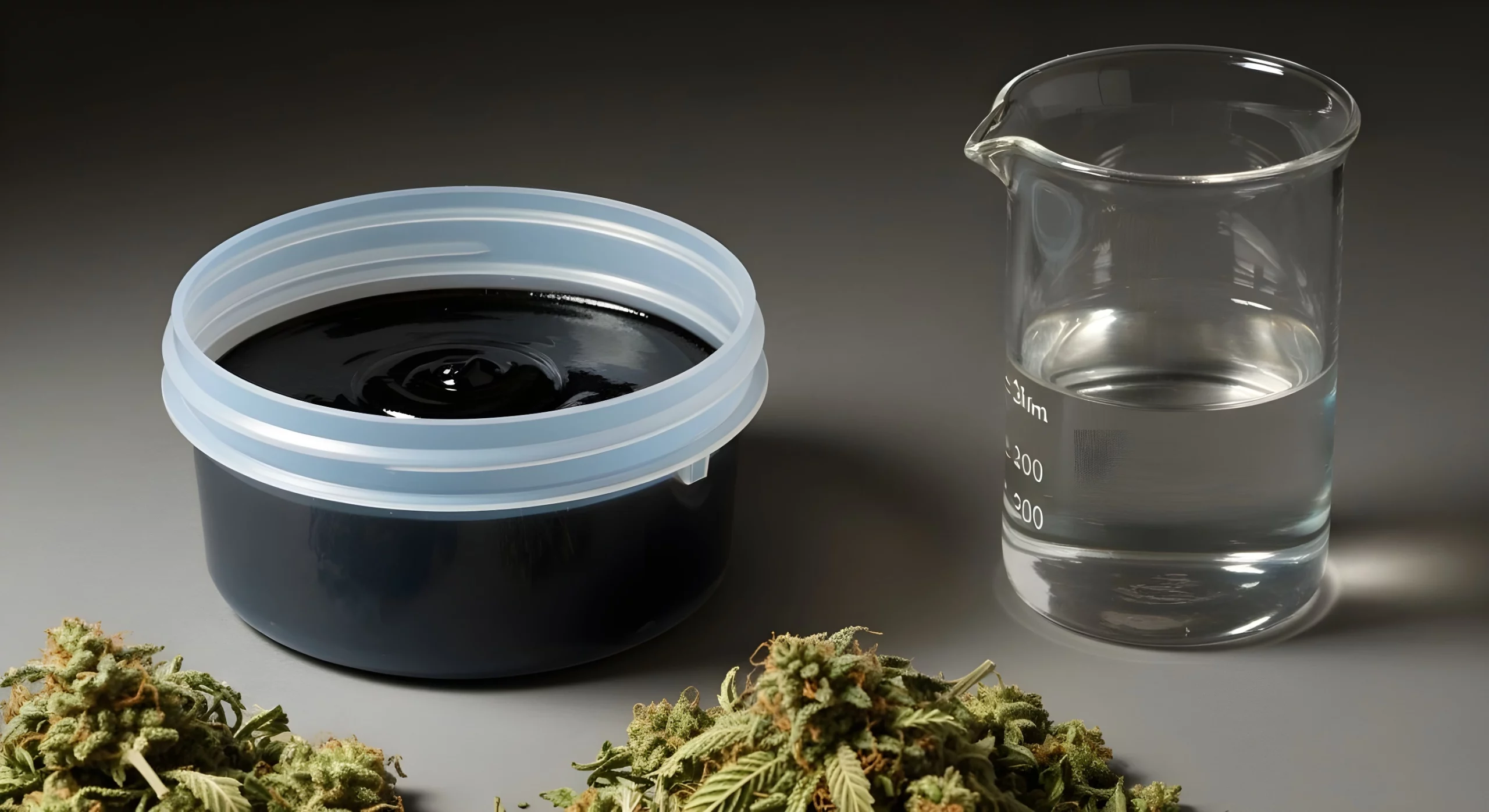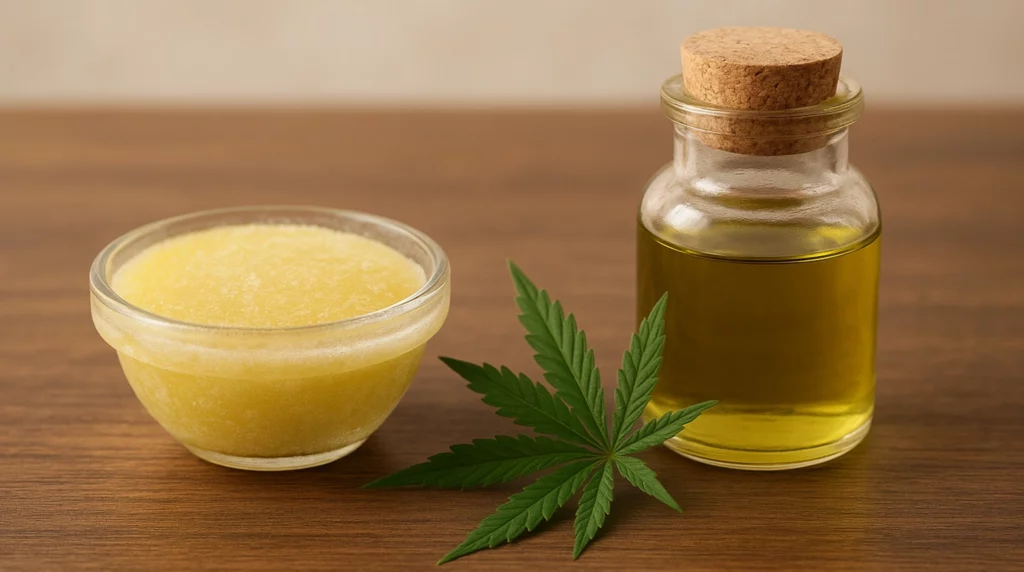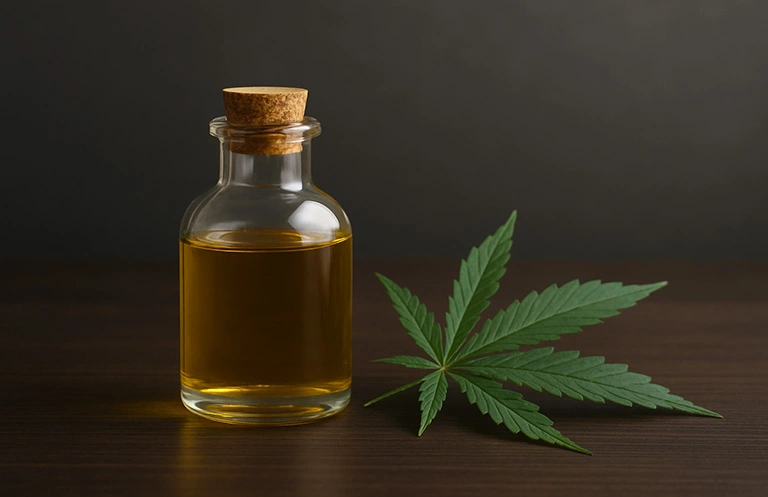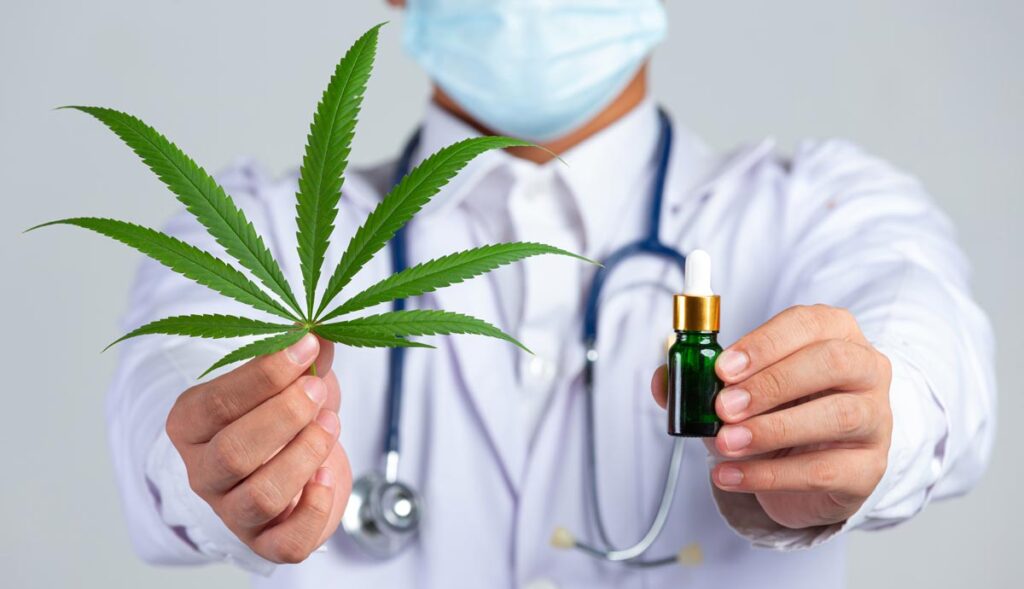Not all ethanol is created equal. If you’re making FECO at home, the choice of alcohol isn’t just a technicality. Potency, purity, and safety all ride on the solvent you use. Let’s have a look at the contenders, the chemistry, and how to choose “The Best Alcohol for Making FECO” for your batch.
What Is FECO, Exactly?
FECO stands for Full Extract Cannabis Oil — a potent, thick, dark oil made by soaking decarboxylated cannabis in high-proof ethanol. Unlike some other concentrates, it aims to preserve the plant’s full profile: cannabinoids, flavonoids, and more. This makes it especially popular for medicinal use.
The better your solvent, the better your extract.
The Gold Standard: Food-Grade Ethanol (190+ Proof)
Best for: purity, safety, full-spectrum extraction
- Example: Everclear 190 proof (95% ethanol)
- Why: High ethanol content means stronger extraction with fewer impurities
- Where: Available in some U.S. states, EU pharmacy-grade suppliers, or specialty solvent retailers
Make sure the ethanol is food-grade and non-denatured. This means it’s safe for ingestion and free from added chemicals.
Note: In some regions, high-proof ethanol is restricted or unavailable. Always check local laws.
What to Avoid: Denatured or Isopropyl Alcohol
- Denatured ethanol often contains toxic additives like methanol or acetone.
- Isopropyl alcohol is NOT food safe and should never be used in edible extracts.
Both may extract cannabinoids, but they leave behind dangerous residues. FECO made with these is not safe for oral use.
Runner-Up: Organic Grain Alcohol
Best for: clean extractions when 190 proof isn’t accessible
- Typically 180 proof
- Derived from corn, wheat, or other grains
- Often certified organic
Great for small-batch makers focused on clean sourcing and low-toxicity inputs.
Wildcard: Ethanol from Cannabis Co-Ops
Some cannabis collectives or small-batch producers offer food-safe ethanol tailored for extraction. This route may offer better transparency and local support — just vet their lab testing and certifications.
Real Use: Ethanol and the NOIDS Herb Cooker
Once you’ve soaked and strained your cannabis in ethanol, the next step is evaporation — and that’s where the NOIDS Herb Cooker shines.
- Use the Evaporation mode to reclaim your ethanol without overheating your extract.
- Read the full user manual here or watch the video on extractions
Storage + Safety Tips
- Store ethanol in a tightly sealed, cool, dark container.
- Use only in well-ventilated areas — ethanol is flammable.
- Keep away from open flames or hot surfaces.
If reclaiming ethanol, make sure the container is food-safe and properly labeled.
FAQ (What Most People Ask)
What is the best alcohol for making FECO?
The best alcohol for FECO is food-grade ethanol (190+ proof), such as Everclear. It’s safe for consumption and highly effective at extracting cannabinoids.
Can I use isopropyl alcohol for FECO?
Isopropyl alcohol is toxic and not safe for ingestion. It should never be used for making FECO intended for oral or medicinal use.
What’s the difference with RSO?
Both are cannabis concentrates. To understand differances between the two, read: “What is Rick Simpson Oil or RSO?“
Is FECO safe to make at home?
Yes, if you use food-safe ethanol and proper equipment like the NOIDS Herb Cooker to safely evaporate alcohol.
Final Thought: Purity = Potency
Using the right ethanol doesn’t just make better oil. It makes safer, more reliable medicine. FECO is about intention — and the solvent is your first commitment.










